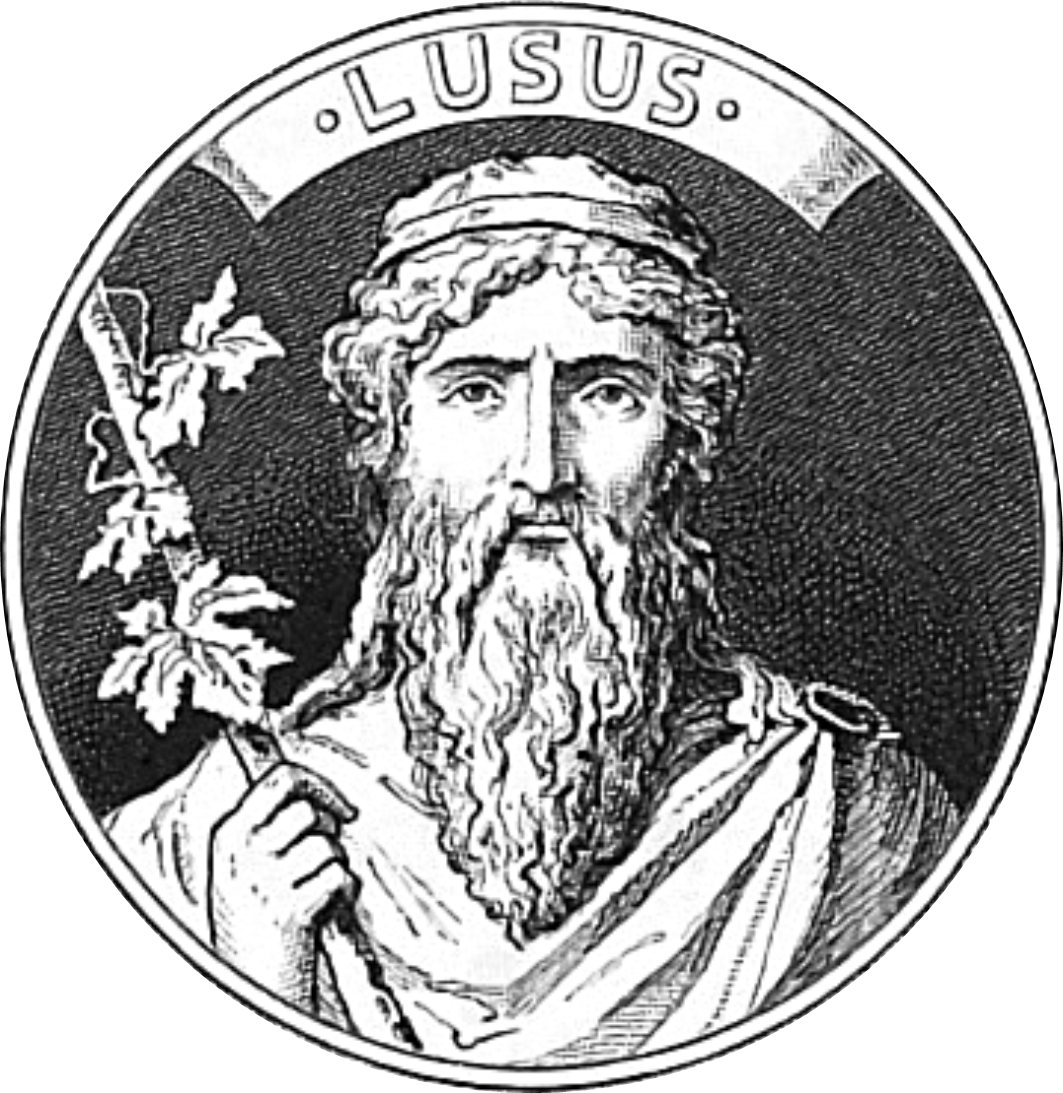Lusitania and Lusitanian(s), luso(s), Lusitanic(s), lusophone, lusosphere and 'lusospanic(s)'
Lusus, engraving in an 1880's Os Lusíadas ("The Lusiads") Portuguese national epic poem.
In the previous posts I made some references to Lusitania and Lusitanians, not clearing what I was talking about (since it was unrelevant to the posts' issue and extemporaneous to it). To clear it up in this one, Lusitania was a region associated to the Lusitanian people from mostly what is now central Portugal (supposedly named after a patriarch, son to god Bacchus called Lusus or Lysias), and after Roman conquest the name of a province of Lusitania which included all Portugal south of the River Durius (Douro), the Spanish Extremadura Autonomous Community and the Province of Salamanca and the comarca of Sayago, and so in the Renaissance with the fashion of looking for ancient cultures and history for references, Lusitania became an alternate poetic name for Portugal and Lusitanian or Luso for Portuguese, etc.. This poetic synonymia only began in the 15th century and only got popular in the 16th. From that came "lusitanic", as term similar to "hispanic" for those influenced by Portugal instead of Spain culturally/ethno-culturally, "lusophone" ("luso-speaking" in Greek) for Portuguese-speakers and "lusosphere" for a general sphere of places of Portuguese influence. A scifi themed poem from a school colleague of my father's in the early 1980s even spoke of a post-Iberian war future Portugal/Spain unity giving rise to a 'lusospanic' people, which is a term that could well be popularised now to refer to the worldwide Iberian-influenced peoples in a cultural and non-political way due to their closer similarities compared to other neo-Latin/Romance peoples.
Luso, gravura numa edição d'Os Lusíadas de 1880.
Nas publicações anteriores eu fiz algumas referências a Lusitânia e Lusitanos, não esclarecendo do que eu estava a falar (visto que era irrelevante ao assunto das publicações e extemporâneo a eles depois). Para esclarecer esta, Lusitânia era uma região associada ao povo lusitano do que é maioritariamente o que é agora Portugal central (supostamente nomeado no seguimento de um patriarca, filho do deus Baco chamado Luso ou Lísia), e depois da conquista romana o nome de uma província da Lusitânia que incluía todo o Portugal ao sul do Rio Durius (Douro), a Comunidade Autónoma da Extremadura espanhola e a província de Salamanca e a comarca de Sayago, e assim no Renascimento com a moda de procurar por culturas e história antigas para referências, Lusitânia tornou-se um nome poético alternativo para Portugal e Lusitano ou Luso para Portugueses, etc.. Esta sinonimia poética só começou no século XV e só ficou popular no XVI. Daí veio "lusitânico", como termo similar a "hispânico" para aqueles influenciados por Portugal em vez de Espanha culturalmente/etno-culturalmente, "lusófono" ("luso-falante" em Grego) para falantes-de-Português e "lusosfera" para uma esfera geral de lugares de influência portuguesa. Um poema de temática de f. científica de um colega de escola do meu pai no início dos anos de 1890 até falou de uma unidade pós-guerra futura ibérica Portugal/Espanha dando ascensão a um povo 'lusospânico', o qual é um termo que podia bem ser popularizado numa maneira cultural não-política devido às suas similitudes mais próximas comparado com outros povos neo-latinos/românicos.



Comentários
Enviar um comentário